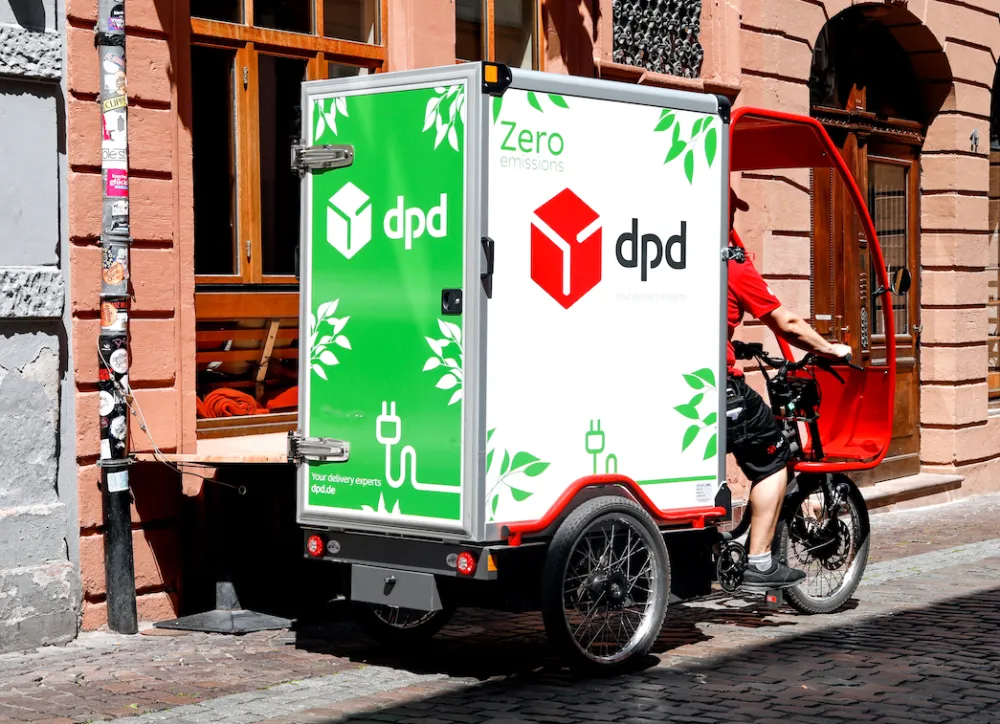TORONTO – Transportation produces 38% of Toronto’s total greenhouse gas emissions, a number that is on an upward trajectory as online shopping increases the number of doorstep deliveries. Cargo e-bikes are a low-carbon option for transporting goods in dense urban areas and a smart alternative to putting more delivery vehicles on the road. In the lead up to Toronto City Council’s decision to participate in the Province’s cargo e-bike pilot program, the Pembina Institute provided key findings that can be applied to a low-carbon delivery system in our report Cargo E-bikes for Urban Deliveries.
Implementing zero and low-emitting delivery systems for transporting goods and people is an important way for cities to play a leadership role in moving Canada toward a net-zero economy. The City of Toronto’s decision to tackle one of the single largest sources of emissions through a cargo e-bike pilot program is a win for communities and climate.
Quick facts about urban delivery and climate change
- Between 2016 and 2020, e-commerce sales grew by more than 350% in Canada.
- By 2030, 36% more delivery vehicles will be on the roads in urban areas worldwide leading to a 30% increase in traffic congestion and emissions.
- Cargo e-bikes are an efficient and zero-emission mode for short urban deliveries.
- In city centres, cargo e-bikes can be on average 60% faster than delivery vans at delivering goods.
- Cargo e-bikes relieve congestion on streets.
- For cargo e-bike pilots to be successfully implemented:
- A pilot program should consider allowing for all types of cargo e-bikes to be used.
- Businesses and consumers should purchase bikes that are best suited to their needs. Cargo e-bikes come in many different shapes, sizes, and motor powers, and can even operate during Canadian winters.
- Cargo e-bikes should be allowed in as much street infrastructure as possible, except for sidewalks for reasons of pedestrian accessibility and safety. This will help promote cargo bikes as a viable means of transporting urban goods while reducing congestion and emissions.
- Over-regulating the cargo bike program should be avoided; instead offer flexibility in where cargo bikes can park.
Quotes
“We applaud Toronto City Council for allowing and encouraging large cargo e-bikes for delivery to operate in the City. It is a decision that is good for the city, good for urban mobility, and good for the climate.”
-- Carolyn Kim, Regional Director, The Pembina Institute.
“Cargo e-bikes offer business a safe, economical, and zero-tailpipe-emission alternative to getting around the city. Cities around the world are using cargo e-bikes to combat climate change. We urge delivery businesses to participate in the pilot.”
-- Mark Stout, Senior Analyst, The Pembina Institute.
[30]
Download a copy of Cargo e-bikes for urban deliveries: Regulatory approaches and standards
Contact
Kendall Anderson
Senior Communications Lead, Pembina Institute
416-220-8804
Background
Letter: Regulatory clarity helps Toronto promote the use of cargo e-bikes
Blog: On the agenda today in Toronto: delivering packages and a healthier, safer city




